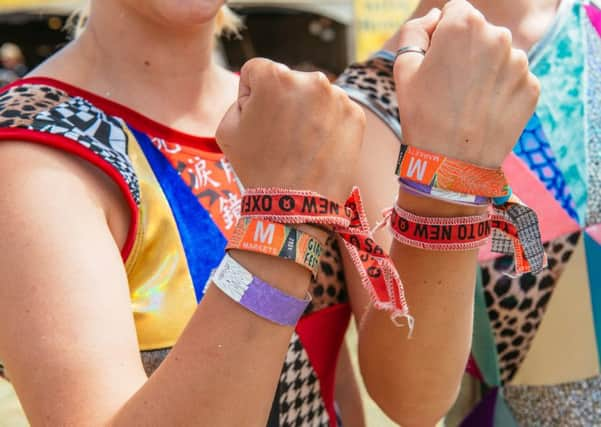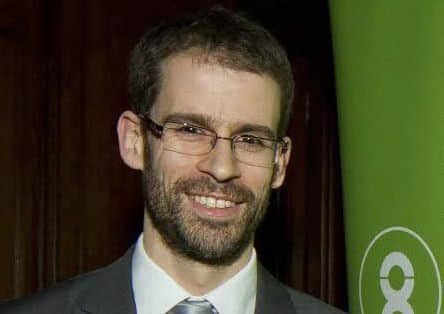Jamie Livingstone: Time to slow down fast fashion for the sake of the planet and people


Our research suggests that more than two tonnes of clothing are bought every 60 seconds in the UK. That produces nearly 50 tonnes of carbon emissions, the same as driving 162,000 miles in a car, or from Glasgow to London and back 200 times.
The fashion industry is responsible for around 8 per cent of global greenhouse gas emissions due to its long supply chains and energy intensive production. Astonishingly, this is more than international aviation and shipping combined.
Advertisement
Hide AdAdvertisement
Hide AdIn Scotland, many of us are already making changes to try to live more sustainably, from recycling household waste, to travelling by car less and public transport more, eating less meat and switching to a greener energy supplier.


These small changes, which are becoming increasingly commonplace in our daily routines, aren’t just minimising our personal climate impact, but they’re also helping us to lead healthier lifestyles.
Of course, the responsibility to make Scotland greener shouldn’t just sit with us as individuals. We’ve seen world-leading ambition from the Scottish Government in pushing to legislate net-zero emissions targets by 2045, and in her recent Programme for Government, it was encouraging to hear First Minister Nicola Sturgeon put climate at the centre of plans on transport, investment and housing.
She also committed to embedding a Circular Economy in law to help replace our throwaway culture with one focused on reusing, repairing and recycling. This sense of urgency must be maintained.
But for people in the world’s poorest countries, 2045 is a lifetime away, when climate-charged emergencies are destroying their livelihoods today.
In the past year alone, we’ve seen cyclones and droughts causing devastation in numerous countries. Even before Cyclones Idai and Kenneth struck, those living in Mozambique were already having to cope with the harsh reality of a changing climate. Rising global temperatures mean more erratic weather patterns. Mozambique has been on the frontline of climate change as drought, floods and disaster have repeatedly hit over the past two years.
We cannot ignore our role in creating this climate emergency. The richest 10 per cent of the world are responsible for around 50 per cent of global emissions, while the poorest half are responsible for just 10 per cent. Countries who have contributed the least to the climate crisis are suffering the full force of its devastating consequences.
As consumers here in Scotland, it is in our power to make a real difference and choosing to buy second hand clothing is another small step each of us can take.
Advertisement
Hide AdAdvertisement
Hide AdThrowaway fashion is not just unsustainable, with 11 million items of clothing in the UK ending up in landfill every week, it is also enjoyed at the expense of workers in dire conditions. We know that to keep costs down in the fashion industry, garment workers are often paid a pittance and are unable to earn their way out of poverty no matter how many hours they work.
By shopping at Oxfam, people can also do their bit to raise money to help us support the world’s poorest people to fight for their right to be paid a fair wage, while supporting those facing climate disasters and ensuring more people have access to basics like clean water.
We need to rethink the way we consume now, and Second Hand September is a fun and easy way for everyone to do their bit to slow down the fashion cycle. It’s a challenge this month, and an important prompt for all of us to think more sustainably about the clothes we buy in the future too.
You can take the pledge to slow down fast fashion and get access to shopping tips and styling tricks at: www.oxfam.org.uk/SecondHandSeptember.
Jamie Livingstone is Head of Oxfam Scotland